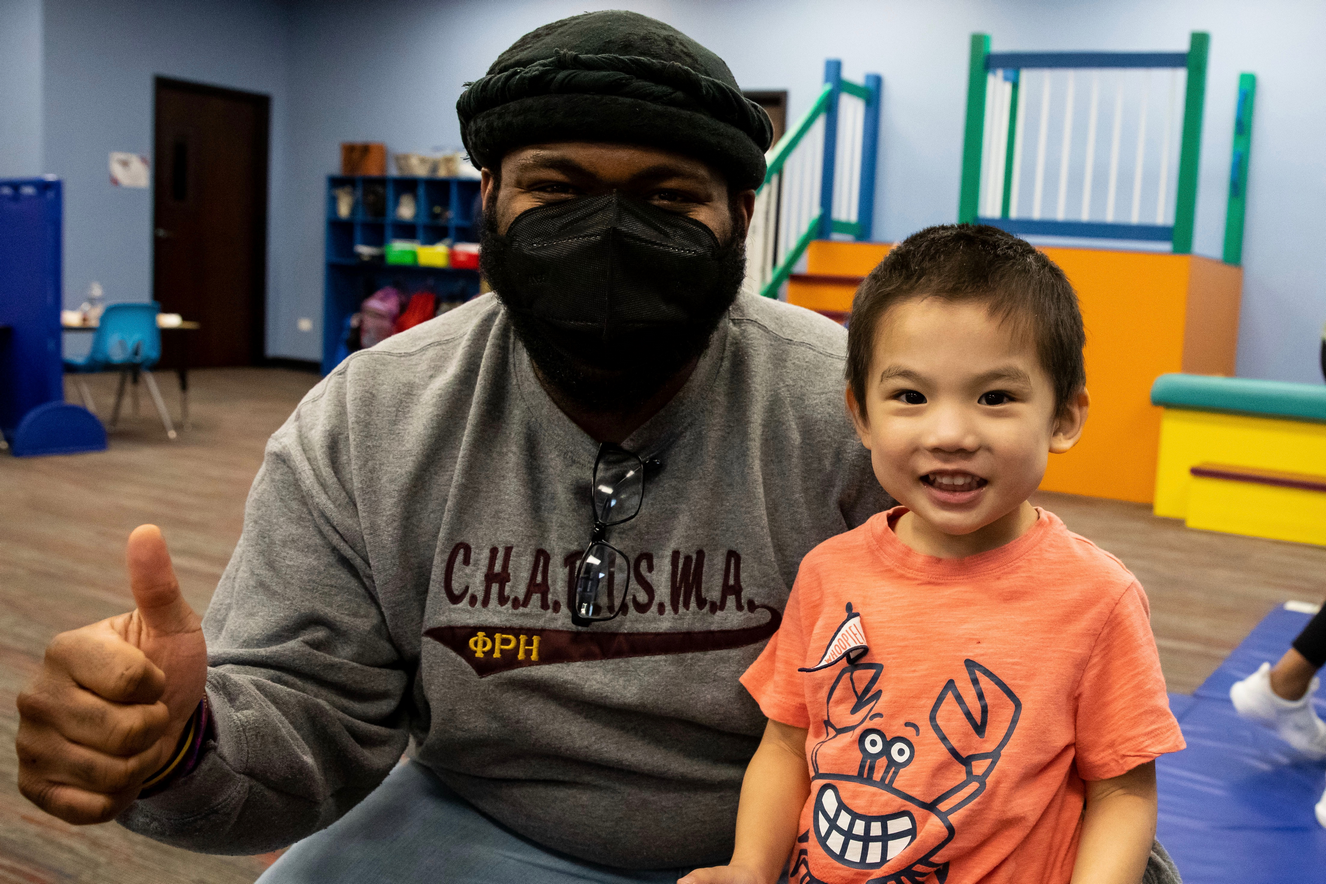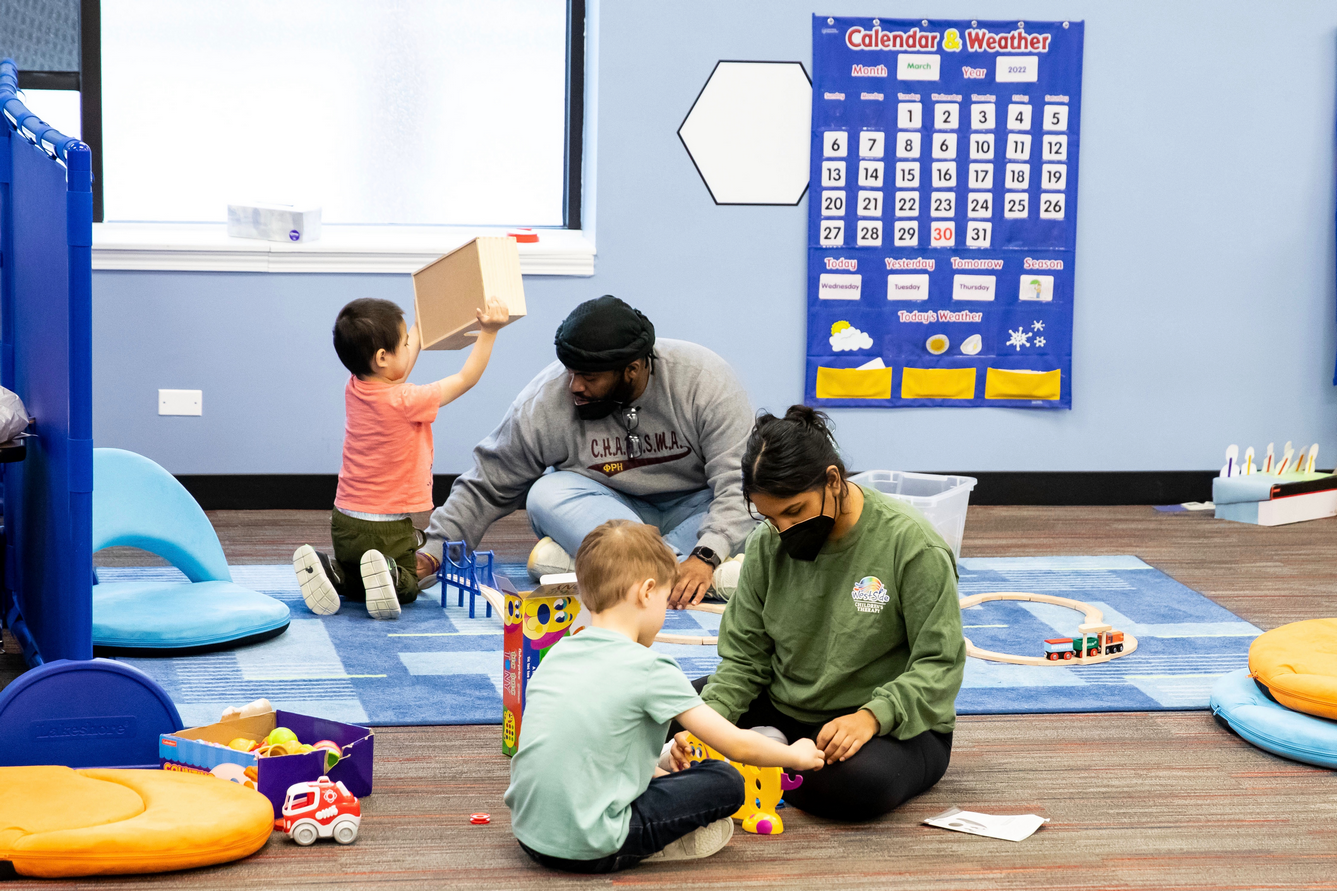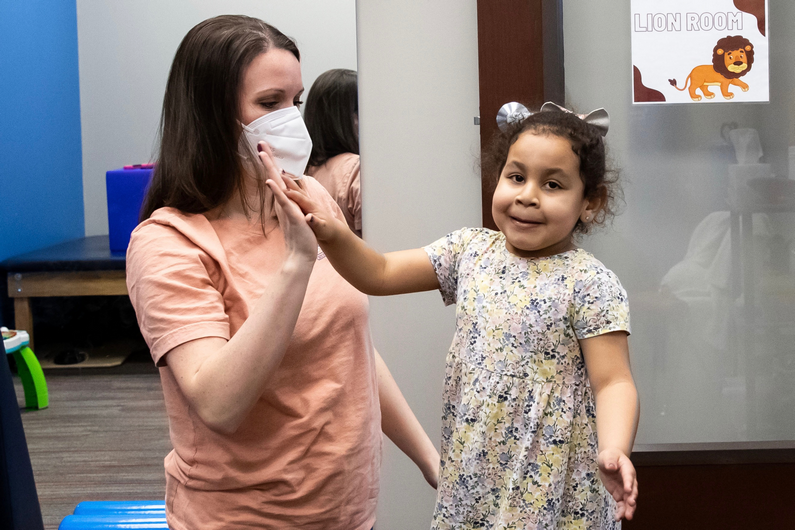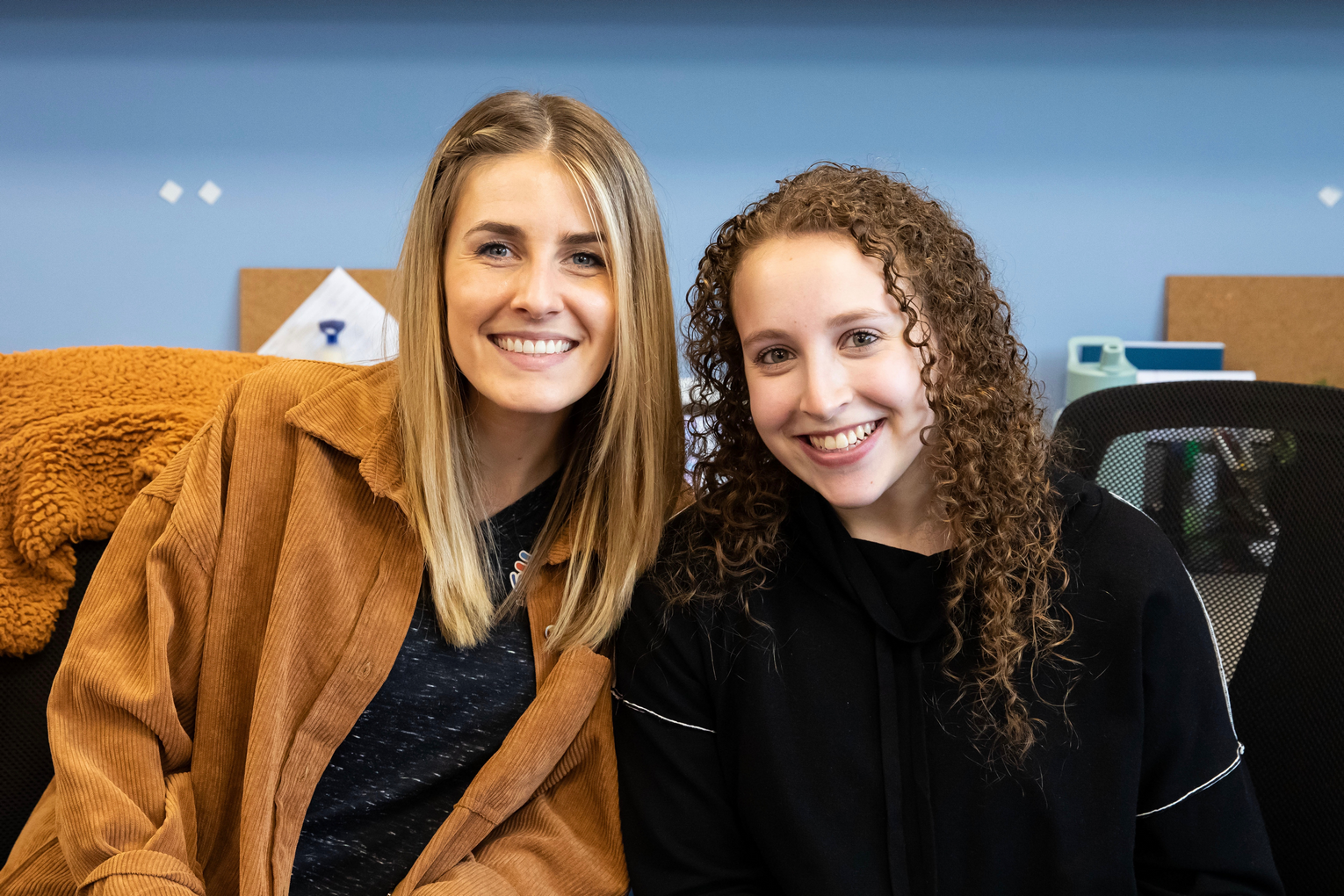- What makes a
goodGREAT RBT?
Positive and outgoing attitude, good leadership, energetic (just to name just a few). A great RBT is one who is patient and has a true passion for working with kids. You also need to have good reasoning skills, consistency and dedication. A great RBT also finds the good in everything and is able to accept and apply the constructive feedback and work collaboratively with your BCBA.
- Your everyday-work can make a bigger difference than you think!
Being an RBT is meaningful work with children with special needs. This job teaches you patience, allows you to build relationships with the families and kids, and what you learn can not only be applied to children or Autism but to all facets of behavior. It is a fun role but is life changing to those families we serve.

- Every kid is different!
This will make every session unique and exciting! But it also forces you to learn what techniques work with certain kids and which skills to focus on. Even though each session may be similar, you can work on generalizing the skills in many different ways.
- Empathy vs. Sympathy. What’s the difference?
Empathy is “walking 100 miles in someone’s shoes.” Sympathy is “feeling bad because their feet hurt. As an RBT, you have to understand the kid beyond their behaviors. Why are they frustrated? If we’re not able to understand, then we can’t guide progress in a fun and compassionate, yet professional way. You can gain an understanding of the perspective from the kids you work with.

- Some days may be tough to push through (It’s so worth it, though! **Be sure to read tip No. 6!**)
There will be days where your client has a rough session. When you see that, it can surely affect you and make it tough to push through the rest of the day. You always want your kids to do their best and have the best day possible. When they don’t, it can be hard to not be hard on yourself. And you may need to learn how to de-escalate severe behaviors. The job also calls for clinically-sound, split-second decisions.
- The rewards outweigh the challenges! You can change someone’s life!
In this job, you get to see all those challenges start to go away. You get to see the kids grow into their newly-learned skills over time. Our therapists can guarantee that there is no better feeling than seeing the kiddos’ families’ faces light up when you tell them what a good session they had. It is rewarding to see your kids gain independent skills and know that you were a part of teaching them.

- You’re going to be learning on the job every day! And you should be!
You’ll have constant support from your BCBA! Westside BCBAs are in the clinic everyday and provide in-person supervision and mentorship. This is also done during weekly team meetings. You also have the opportunity to speak 1-on-1 with your lead BCBA.
Aside from learning day-to-day skills, you will also learn that the principles used in ABA can be generalized to many areas in life! This includes, teaching any skill, raising a child and breaking unwanted habits! You can apply all of that to yourself as well! Practice what you preach!
- You will grow professionally and personally!
You have opportunities to advance your career in the field of ABA. A story of that happening: “During my time of being an RBT, I completed my Masters degree in ABA, got my field experience hours to become a BCBA, and became one! It has been such an amazing journey and wonderful experience. I will constantly be learning and growing in this field!”
This career can teach you how to remain calm in your own stressful situations, build professional relationships with clients and family members. This has fostered better communication skills around me and be able to understand people’s behaviors better.
- You can take on different/additional roles
You can lead programs within Westside! Westside offers 3 therapeutic programs for children with Autism. One of our RBTs became a program coordinator for our after-school program for children with Autism, and she was able to plan fun activities that work on social skills in a setting with similar-aged peers.
You can also move into a Lead RBT position. Lead RBTs help train new RBTs coming on the team, mentor other RBTs and assist the Lead BCBA with scheduling.
- You will build strong relationships with your team!
Working as an RBT at Westside, you will develop long-lasting friendships with your teammates. You will form strong bonds that allow you to support others and have them support you. There is constant encouragement in helping each other succeed.
Two times a year, you will receive a team outing stipend for you and your peers to bond outside of work! This encourages the building of personal and professional relationships that increase team morale.

We asked some of Westside’s RBTs what they would tell their old self as if they were sitting in a classroom or beginning to look into a career in ABA; specifically as an RBT.
“Being an RBT is meaningful work with children with special needs. This job teaches you patience, allows you to build relationships with the families and kids, and what you learn can not only be applied to children or Autism but to all facets of behavior. It is a fun role but is life changing to those families we serve.”
- Alejandro, 5 years in the field
“Being an RBT is so rewarding. The best parts of the job include being able to watch the kids you work with succeed with the programs you implement and seeing the positive impact you make on families. It makes the hard parts of the job SO worth it.”
- Jordan, 2.5 years in the field
“Being an RBT is hard work. There are days you go home feeling exhausted and totally defeated. There are also days when you go home feeling like you are on top of the world because something finally clicked for one of your kiddos! It is the hardest but most rewarding job ever!”
- Emily, 5 years in the field
“Being an RBT is the most rewarding job I have ever held. You get to see kiddos grow in skills others may not have thought they could. In this role, you need to be able to consistently think on your toes to ensure consistency of session and follow through with expectations given – regardless of the responses that are being thrown at you.”
- Courtney, 2 years in the field







